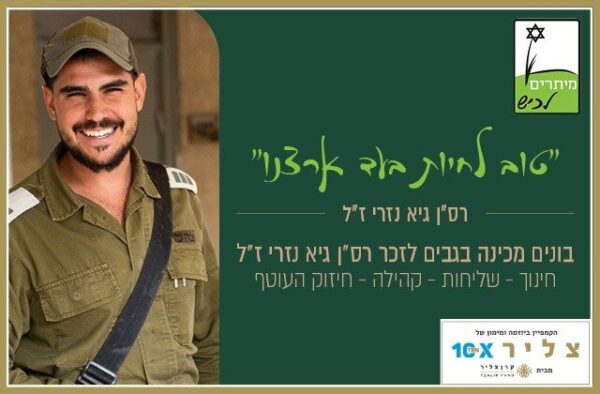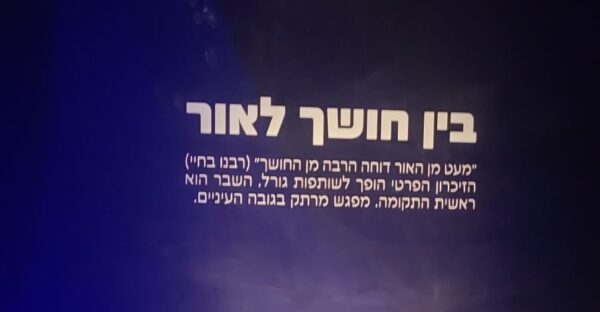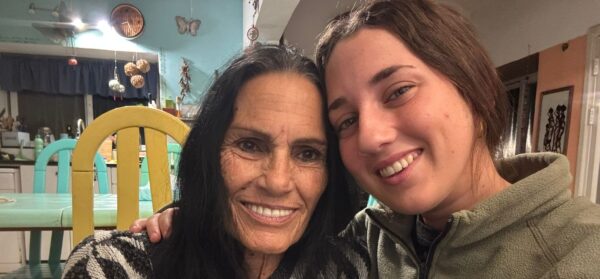In September 2024, something extraordinary happened. Forty-four adults – many retired, some still working part-time – packed up their lives and left home for a year. They didn’t go on holiday. They didn’t move to be closer to family. They went south – to places most had never lived, many had never visited – to begin a year of service with Shnat Sherut 50 Plus.
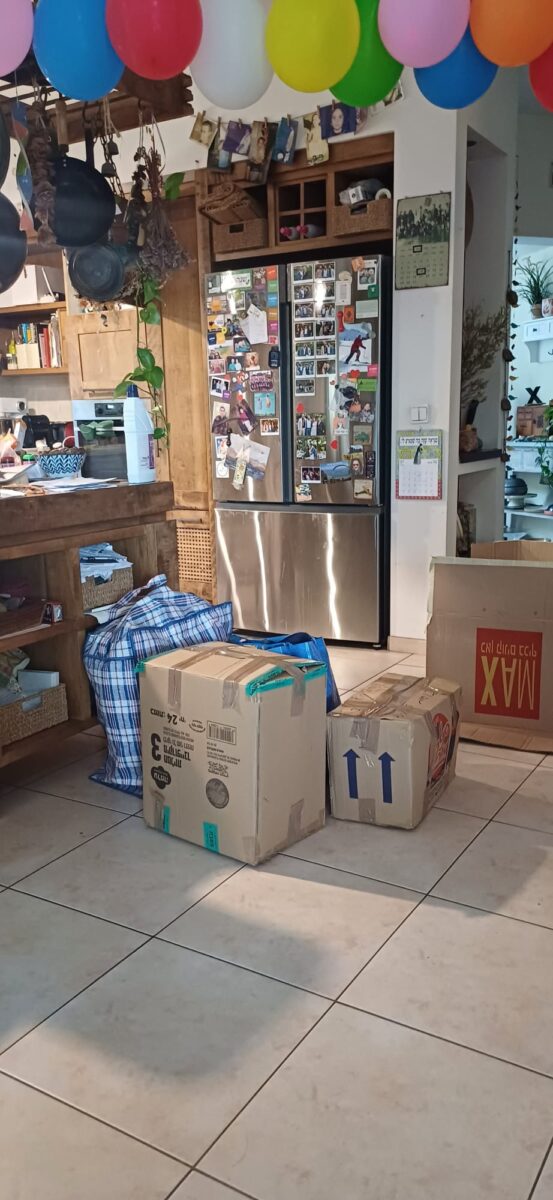
They came from cities, moshavim, kibbutzim. From Haifa, Tel Aviv, Jerusalem, Modi’in, and elsewhere. They left behind children, grandchildren, friends, routines, gardens, favorite cafes – and chose instead to live in Ofakim, Eshkol, Sha’ar HaNegev and Merhavim. They came not to observe, but to live, support, and stand beside communities still reeling from the trauma of October 7th.
And the moment they arrived, the reality set in.
The Big Move – and the Bare Rooms
Many of the volunteers arrived to housing that was… not quite ready. Some apartments were completely bare – no furniture, no beds, not even a chair to sit on. But this wasn’t met with panic – it was met with a wave of quiet, determined cooperation.
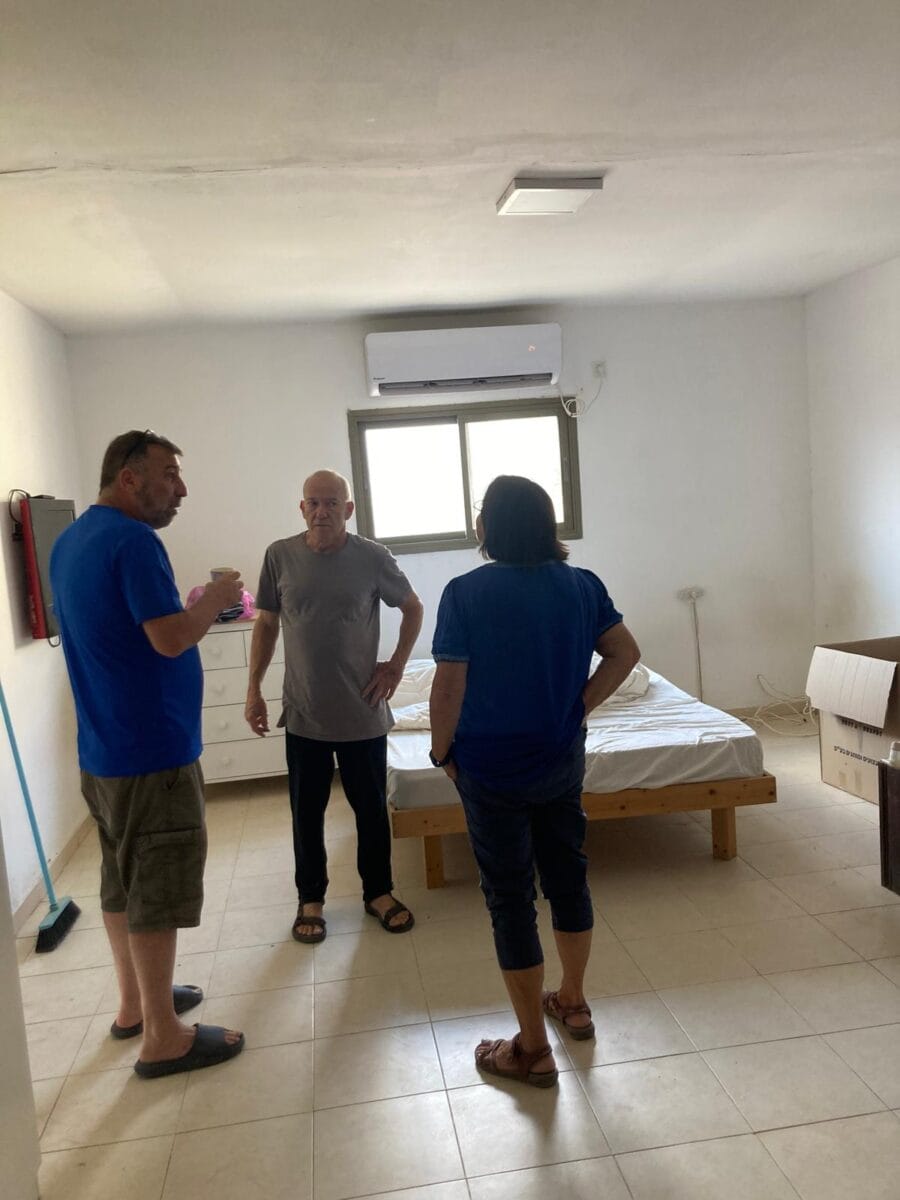
People called friends who called cousins who knew someone nearby. A few WhatsApp messages later, and volunteers were loading donated beds into borrowed vans, finding kitchen tables in storage sheds, and trading extra mattresses between apartments.
One volunteer recalled, “We didn’t just move in – we built a home. Together.”
The scramble for furniture became something more than logistics. It became a bonding experience – the first of many that would cement the groups into tight-knit communities.
Living in the Unknown
For most, this was their first time living in these areas. The physical distance from their familiar lives was real – but so was the emotional leap.
“We left behind full lives, plans, children, grandchildren, and said: We are here, take us,” wrote volunteer Ahuva Klein in those first weeks.
For some, the housing was in active towns. For others, it was in evacuated kibbutzim like Nahal Oz – a ghostly place still marked by trauma. In a place such as that, just turning on a light in the evening felt like a small act of defiance against despair.
From Strangers to Something More
Each group – Eshkol, Merhavim, and Ofakim – formed its own unique rhythm. People who had never met became roommates, neighbors, teammates, even close friends. They cooked together, navigated council bureaucracy, mapped the nearest grocery store, found doctors, figured out the heating.
And slowly, something remarkable happened: these strangers became communities.
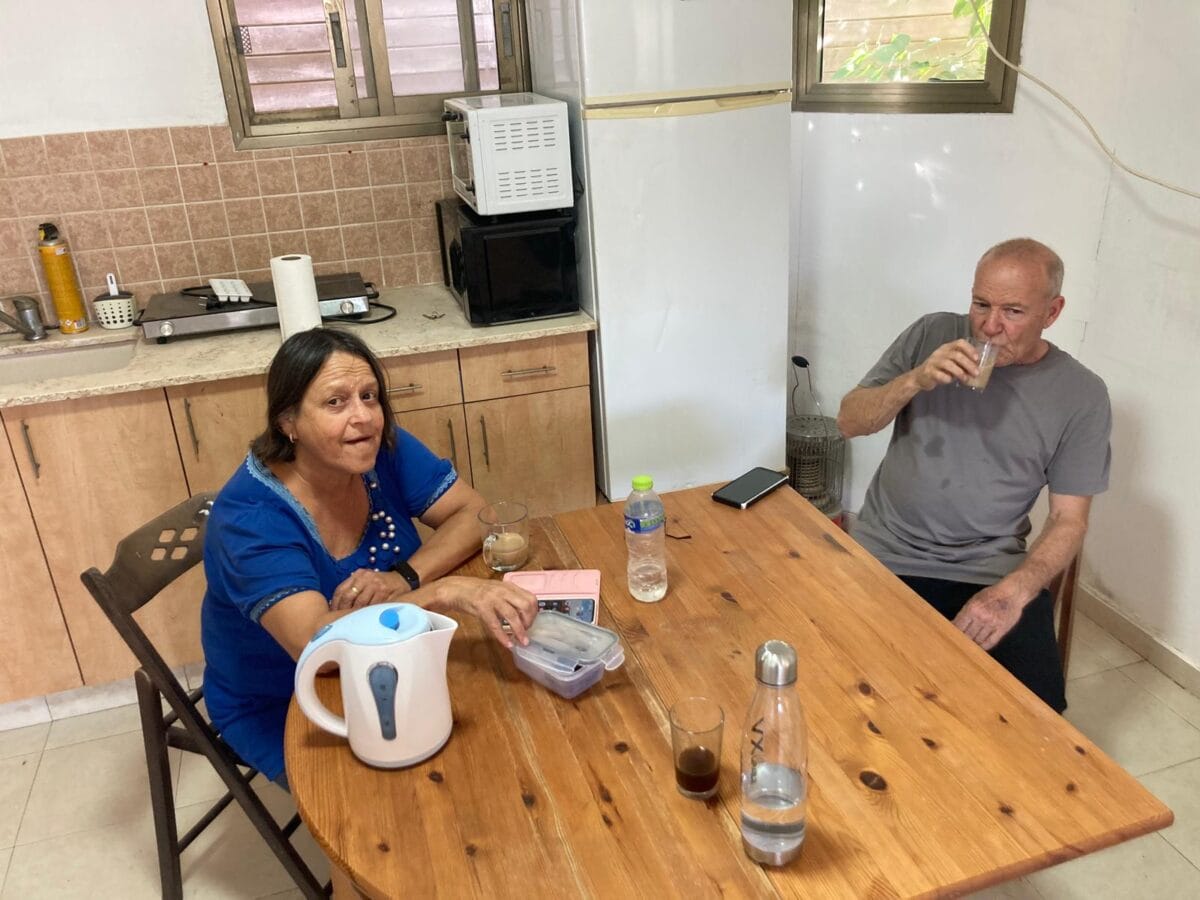
“Those early weeks were not always easy,” one volunteer reflected. “But we laughed, we helped each other, and we learned to rely on one another. That trust became our anchor.”
Group WhatsApp chats became lifelines. Someone always knew someone who could help. A fridge that broke down was replaced by morning. A ride to the clinic? Already taken care of.
This web of support – informal but powerful – became the real infrastructure that held the project together.
Starting to Give, and Starting to Receive
Soon after settling in, volunteers began their placements. In schools, seniors’ centers, welfare departments, cultural centers, and health clinics – they started small, listening, learning, figuring out where they could be useful.
But what they quickly discovered is that their very presence mattered. Just by showing up – every day – they helped restore a sense of normalcy, commitment, and quiet resilience.
They also began receiving. From the communities. From one another. From the land itself.
“There was a moment,” shared one volunteer in Nahal Oz, “when I realized I hadn’t just left home – I had brought something with me. My experience. My heart. And maybe that’s what this place needed, too.”
A Year That Began with Courage
The first step was the hardest. Saying goodbye. Showing up. Sleeping in a strange place on a borrowed bed. But it was also the most meaningful.
What emerged from that step wasn’t just a volunteer project. It was a statement:
That people over 50 are still builders. Still dreamers. Still needed.
That small apartments can hold big hopes.
And that community can be created – from scratch – when the cause is shared and the purpose is clear.
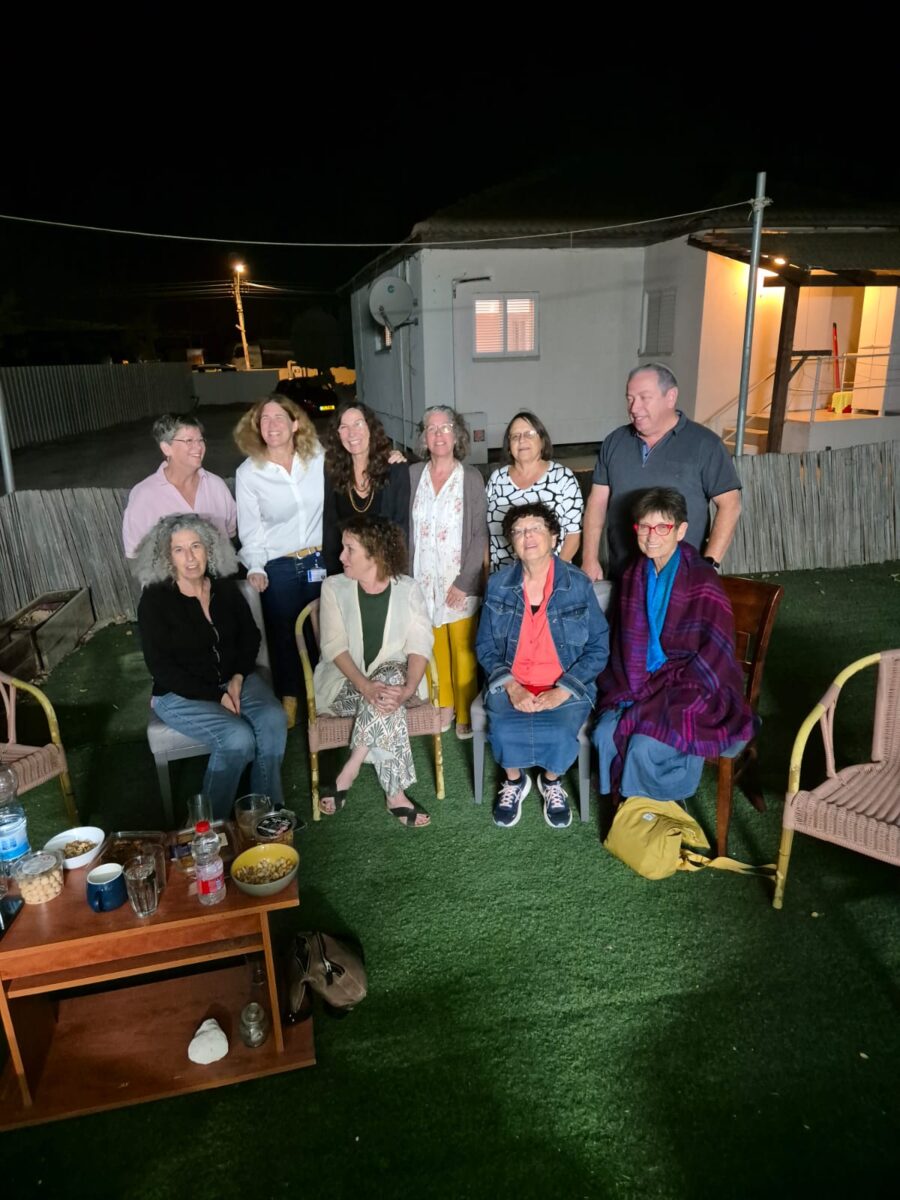
“If we have a why,” said one volunteer, quoting Viktor Frankl, “we’ll find the how.”
And they did.

